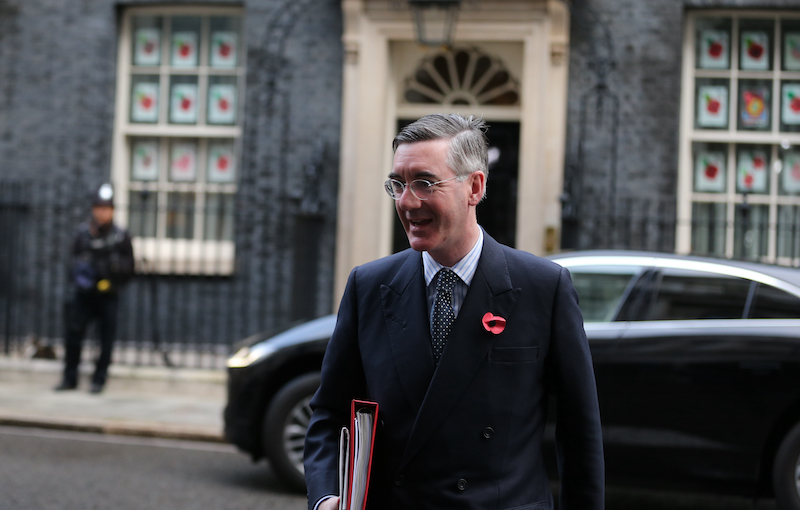UK government’s business secretary calls for ‘Freedom for chocolate oranges’

Pic: Shutterstock
UK government business secretary, Jacob Rees-Mogg has entered the debate over new high fat, salt and sugar (HFSS) legislation, after declaring consumers should offer a peaceful protest through putting a chocolate orange back by a checkout, reports Neill Barston.
His comments against the new measures at fringe meeting of the Conservative Party Conference this week underlined his objection to regulation within markets – following numerous remarks the senior politician has made on the subject of European, EU-based legislative practice for which he has actively campaigned against.
However, the latest regulations that he has railed against are not in fact legislation emerging from Brussels, but guidelines approved by the government’s own health departments in consultation with industry.
The latest guidelines on HFSS ranges – which include many segments confectionery and snacks, will also see television advertising for such ranges face daytime limits from next year – leading to a backlash from the food and drink sector, including concerns expressed by members of the Food and Drink Federation.
However, national health campaigners including Action On Sugar, have continued to express serious concerns as around a third of UK children are considered to be clinically obese – with supermarkets traditionally favouring placing sweet treats near checkouts in the knowledge that it drives impulse buying habits – which health organisations and charities have long cited as a major concern, with children’s ‘pester power’ proving a key factor with key issues of unhealthy eating habits.
In his latest statement against the new policies, which came into force within the UK at the beginning of this month, Rees-Mogg told the audience that ‘May I encourage people as a passive protest suggest that they move chocolate oranges to the checkout counter. Freedom for chocolate oranges is what I say!”
While HFSS rules come in the wake of a previous campaign from the government linked Public Health England body challenged the food and drink sector to reduce sugar levels by 20% within sector product ranges during the past five years.
However, the voluntary programme – unlike the successful ‘sugar tax’ on the beverages market failed to meet targets – with some chocolate series in fact increasing sugar content over the course of four years.
